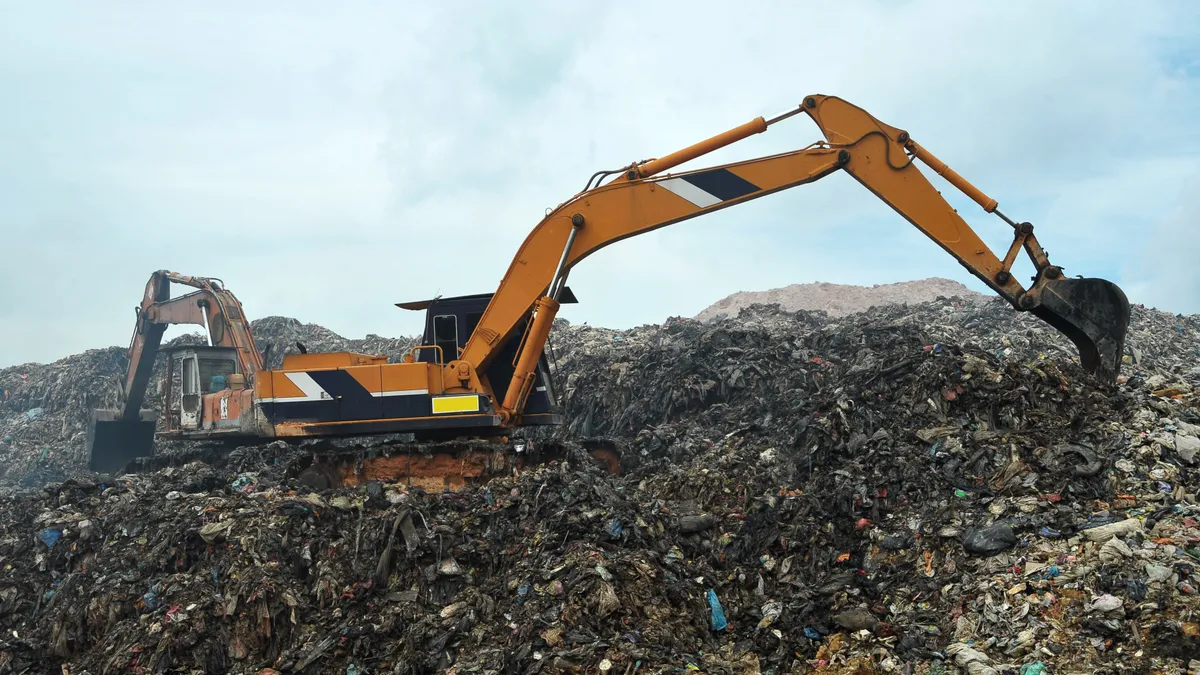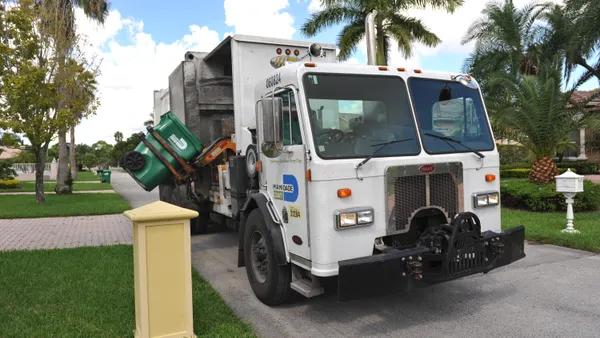UPDATE: Local opinions on the Seneca Meadows Landfill in Seneca Falls, NY may still be at odds, but a recent state decision has effectively ensured it will stay open for the near future. Earlier this month, New York's Department of Environmental Conservation (DEC) granted an extension of the site's operating permit through the end of 2025, as reported by the Finger Lakes Times.
This approval includes seven new operating conditions from the DEC, including odor controls, and will also allow for a public comment period. The site's accepted maximum of 6,000 tons per day was unchanged. Seneca Meadows, owned by Waste Connections, had initially asked for a 10-year extension. Local residents that want to see the site closed, including the Seneca Falls Environmental Action Committee, expressed their disappointment in the decision — though they were happy that the extension was shorter than it could have been.
The topic continues to be contentious among residents and the Seneca Falls Town Board. Opinions differ on the five-member body as to whether Seneca Meadows should close in 2025 or be allowed to stay open longer. Two of those seats are being contested in a Nov. 7 local election and the four candidates running have varying opinions on how to proceed, as reported by the Times.
Dive Brief:
- At a meeting on May 5, the town board of Seneca Falls, NY voted in favor of repealing a previous law that aimed to close the Seneca Meadows landfill operated by Waste Connections. The board voted 3-2 in favor of Local Law 2 of 2017, which repeals Local Law 3 of 2016, as reported by the Finger Lakes Times.
- The previous law called for the site to close by the end of 2025 by requiring a new review process at the end of the site's current operating permit. During the same meeting, the board also voted 3-2 in favor of a motion stating that the decision wouldn't have serious adverse environmental impacts under New York's State Environmental Quality Review Act.
- Discussion at the meeting was contentious, with accusations of bias toward certain members due to their acceptance of political contributions from the landfill operators. Local groups such as the Seneca Falls Environmental Action Committee and Concerned Citizens of Seneca County have pledged to fight the decision, possibly through legal action.
Dive Insight:
The Seneca Falls site has stirred debate for years and local advocates believed they had achieved victory when Local Law 3 was passed last year. Yet a change in the town board's membership, and ongoing community engagement efforts from the site's operators, has helped shift the situation just enough to favor keeping the landfill open. The fact that the small town received $3 million in host fees during 2016 also played a role.
When asked for his reaction to the news at WasteExpo, Waste Connections CEO Ron Mittelstaedt said the previous local law wouldn't have led to a binding closure but recognized that this was still a more desirable outcome for the company.
"It's a good thing long-term for us and we believe for them, because they have host fees and royalties based on what we do. So hopefully it should be beneficial to them too," he told Waste Dive.
Though Mittelstaedt also noted that this didn't mean Waste Connections planned to pursue plans for any future rail transfer contracts at the site. Progressive Waste Solutions had previously been selected for a barge to rail export contract by New York's Department of Sanitation but ended up backing out of it ahead of the Waste Connections acquisition last spring.
"We're not planning on bidding anything from New York City. We had made a commitment to Seneca that [Progressive] would pull out of the New York City bid," said Mittelstaedt. "We're not going to go back on what we committed to them."
The $3.3 billion contract in question has since been awarded to Waste Management, which will be taking the material to landfills in New York and Virginia. Waste Connections still takes waste from the city to Seneca Falls by truck and has previously indicated that they see additional collection opportunities if New York ends up finalizing its commercial franchising plan.













